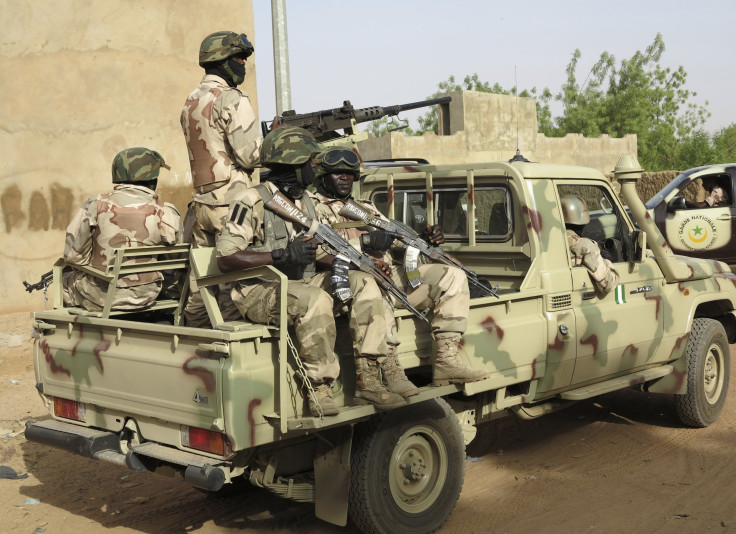Nigerian Soldiers Face Death Penalty For Mutiny, Attempted Murder Of Commanding Officer

Twelve Nigerian soldiers were sentenced to death on Tuesday on charges of mutiny and attempted murder of their commanding officer in restive Maiduguri, the capital of Borno state in northeastern Nigeria. The soldiers, who were reportedly in their 20s and ranking from private to corporal, have denied the charges.
The soldiers were reportedly convicted of three out of six offenses of mutiny, criminal conspiracy, attempted murder, disobeying orders, insubordination and false accusation, by a nine-member military tribunal in Abuja. Brig. Gen. Chukwuemeka Okonkwo found the 12 soldiers guilty but acquitted five others of all charges. Another soldier was convicted on another count and was sentenced to 28 days in jail with hard labor, The Associated Press reported.
The incident reportedly took place in May, after a convoy of soldiers fighting Boko Haram in northeastern Nigeria was ordered to drive through a road frequently targeted by the Islamic militant group. On May 13, the troops were attacked by the insurgent group on the road from Chibok, a town from where more than 270 schoolgirls were abducted in April. The attack reportedly claimed the lives of an unknown number of soldiers.
Soldiers revolted by throwing stones and firing at their commanding officer, Maj. Gen. A. Mohammed, after the bodies of the ambushed troops were brought back. Mohammed reportedly took refuge in “an armor-plated vehicle” and was unharmed.
In August, a group of government soldiers had refused to fight Boko Haram militants claiming the latter were better equipped than the Nigerian troops sent to fight them.
According to AP, the court martial panel said that it "considered the gravity of the offense alleged, particularly the attempt to kill the general officer commanding 7 Division, Nigerian Army, and it's likely effect on the counter-insurgency operations in the northeast as well as its implications on national security." Okonkwo also reportedly said that the sentencing was subject to confirmation by Nigeria’s military authorities.
Nigeria's military and government have been criticized for being ineffective in containing the militant group, which has claimed thousands of lives since it became active in 2009, and recently declared an Islamic caliphate in the country's northeast, apparently modeled on the one formed by the Islamic State in parts of Syria and Iraq.
© Copyright IBTimes 2025. All rights reserved.





















